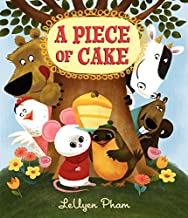Perhaps at this point you're still wondering, "So what?"
I understand that we're all made differently. We all learn differently and have different ways of expressing our talents and intellegence, and at CHESS we celebrate that! So why are we trying to make readers out of kids who might just naturally prefer other activities?
The bottom line, as I shared in a previous post, is that reading choice and volume are the keys to making proficient readers who know what they know and what they need to know, and making proficient readers is an important part of building literate citizens of both this world and the Kingdom.
Hang on - I know that sounds dramatic. I'm not suggesting that if someone doesn't love spending hours reading on a beach vacation that they aren't a good citizen.
We're not trying to grow readers so that everyone can be a bookworm.
But the fact is that everyone must learn to read (we all agree on that, I think), and increasingly, if it hasn't always been this way, it's becoming important for everyone to learn how to read closely and to evaluate their comprehension of what they've read.
Do you read memos, emails, documents, etc. for work?
Do you read your child's homework?
Do you read when you research medical conditions? Or anything else on the internet?
Do you read social media posts?
Do you read articles from all points of view and conflicting opinions?
Do you read legislation so that you know if it's a good bill or not? (Should you?)
Do you read the Bible and what others say about the Bible?
We actually read all the time, whether it's for enjoyment or not. Perhaps some of us have had to develop these reading comprehension skills as adults, but that's a lot of time lost! NOW is the time to catch our children if we can, to teach them how to read and how to read well.
Coming full circle, that means that they must read, and they must read daily. According to the National Council of Teachers of English (2017), reading comprehension skills and vocabulary development are "directly tied to the work readers do during independent reading (Fraumeni-McBride, 2017)." Students as young as 2nd grade and as high as 12th (it's not too late!) show increased reading skills in this model, and if it matters to you (it's not the most important thing, but we do look at it), higher reading test scores are a often a direct benefit of this model of reading (Ivey & Johnston, 2015).
Yes, it might take some discipline and an intial shift of priorities in some areas. This is no different, however, from the amount of time and work we expect our students to devote to other academic areas. They are not all going to be mathematicians or scientists, but they study math and science every day because it is imperative that they develop critical thinking skills and learn about the world around us. It is the same with reading, and (if I might be so bold), perhaps even more so, because to be able to study math and science effectively, they have to know how to read!
We are also hoping and believing that, if the numerous studies about this are right, students who choose what they are reading will find it less tedious - even enjoyable! - in the first place, and in the second place, that the time they might have devoted to a study guide for a novel can be freed for reading instead.We know this is a challenge, but we believe that it's one with rich rewards for students, families, and our school.
Sources:
Fraumeni-McBride. (2017). The effects of choice on reading engagement and comprehension for second- and third- graders: An action research report. Journal of Montessori Research.
Ivey, G. and Johnston, P. (2015). Engaged reading as a collabortive transformative practice. Journal of Literacy Research.



.png)
.png)



.png)

